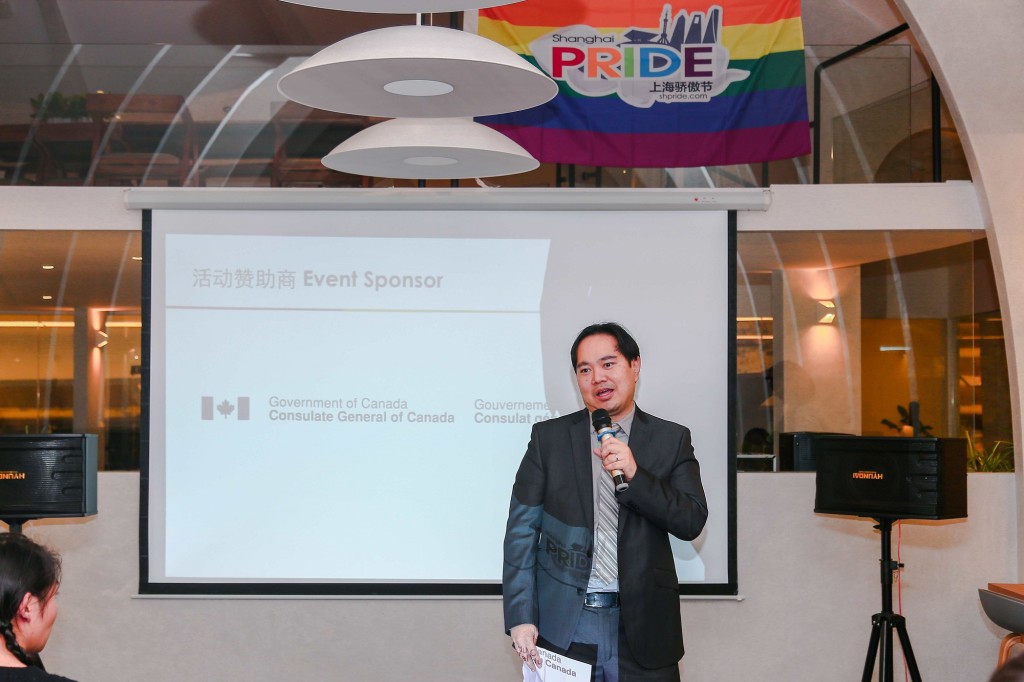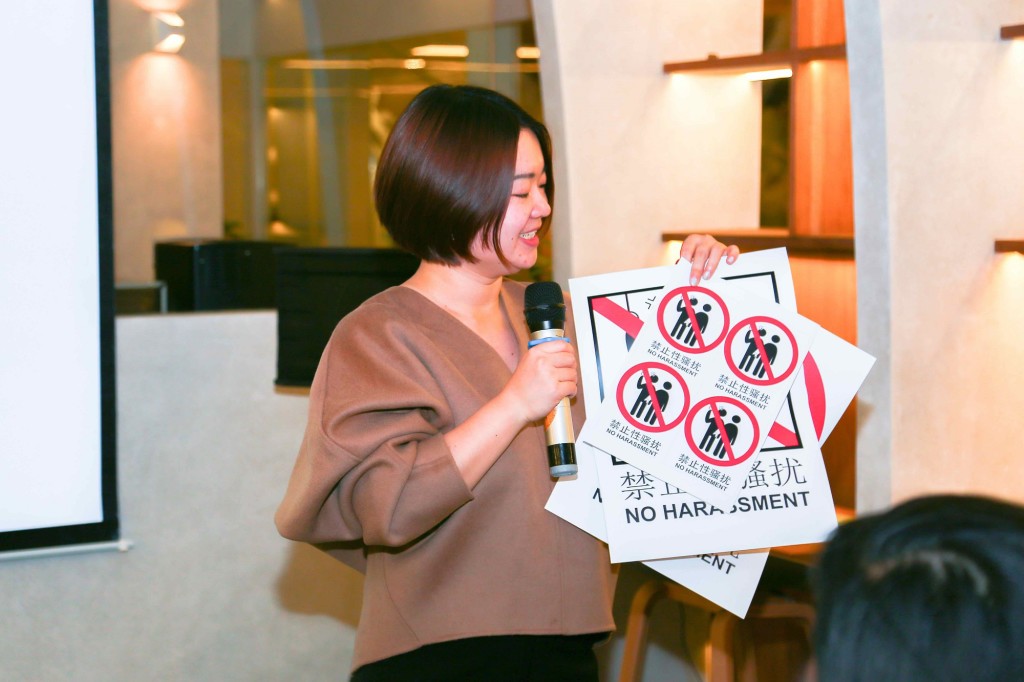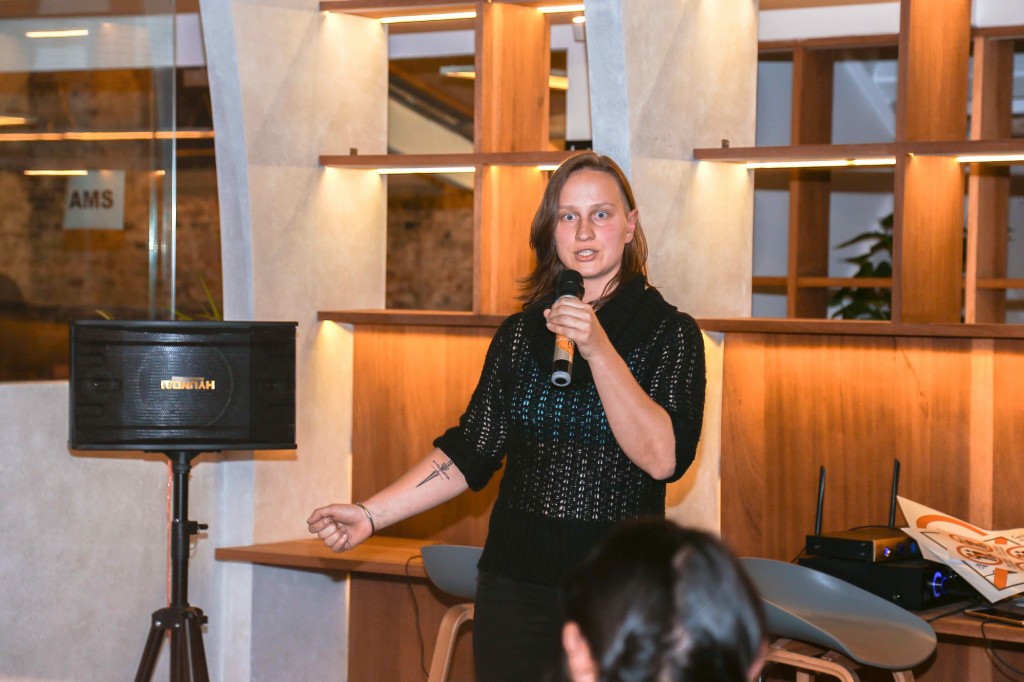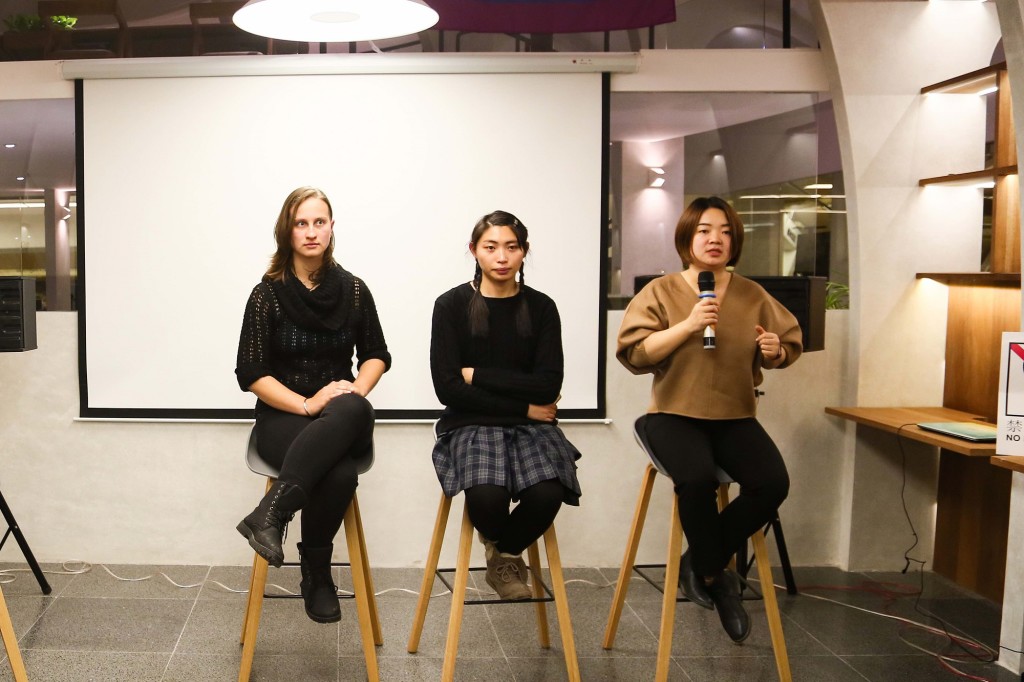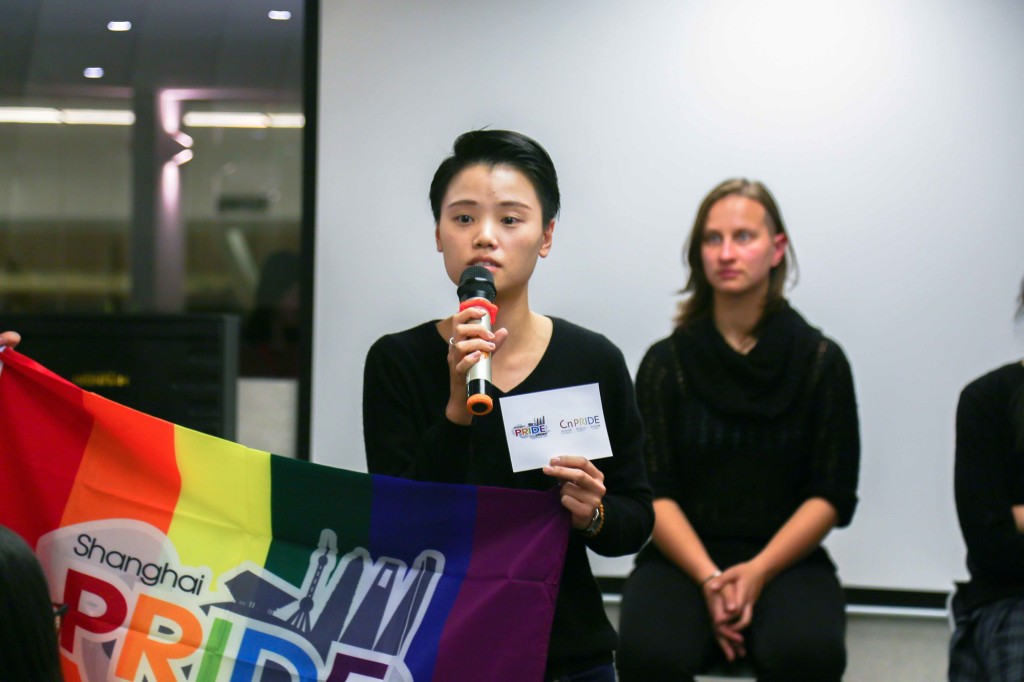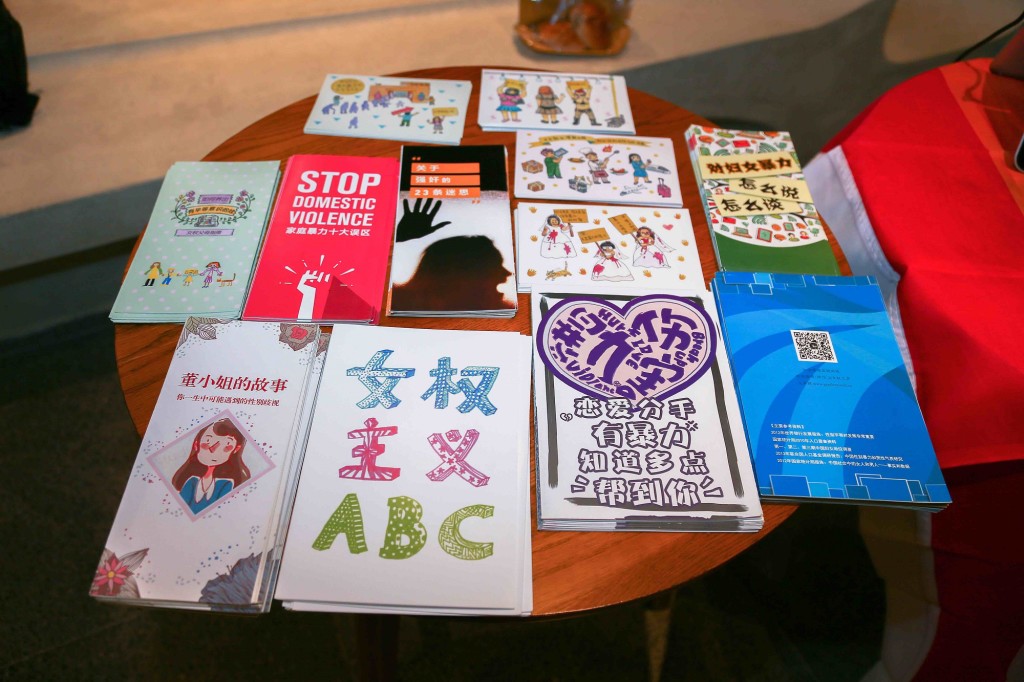Event Recap: Women Up! X CADVN China Anti-Domestic Violence Network
Part 1: Raising Awareness Against Violence
In 1999, the United Nations General Assembly designated November 25th as the International Day for the Elimination of Violence Against Women. To increase awareness of violence against women and gender minorities, ShanghaiPRIDE Women Up! held the first of four events in its China Anti-Domestic Violence Network (CADVN) Series at MIXPACE on November 24th, sponsored by the Consulate General of Canada.
CADVN was founded this year to centralize resources and organizers in the movement against violence toward women, queer people and trans people. Lilian Shen, the co-founder of Women Up! and the CADVN initiative, shared her personal motivations for bringing this topic to the forefront, opening the event with moving remarks.
Mr. Jose Sia, Consul for Political, Economic and Public Affairs at the Canadian Consulate General in Shanghai, expressed the consulate’s support for the elimination of domestic violence for all, regardless of gender or sexual orientation.
The event’s first speaker was Xiong Jing, Executive Director of Feminist Voices and co-founder of Xitao Women’s Leadership. She has been at the helm of the young feminist movement in China since 2011, specializing in social media, online mobilization and gender awareness training. Xiong shared past initiatives by the Chinese young feminist activists and research on the current state of gender-based violence in China. She also played an inspiring video of an activity the group did on the Beijing metro, in which volunteers performed “Do You Hear the Women Sing?” — an adaptation of “Do You Hear the People Sing?” from the famous musical “Les Misérables.”
China’s law on domestic violence was amended in 2016 to include psychological violence (but not sexual violence) and support for emergency systems to assist survivors. However, policy will always be one step behind society, and there are further challenges that persist in execution. A study on gender-based violence showed that 39% of women experience sexual violence in China. Yet only 106 protective orders were applied in Shanghai, which indicates that most domestic violence cases go unreported. Even when survivors stand up to report cases, they face challenges including unprepared police officers, ineffective shelters and social stigmas surrounding their experience.
The event’s second speaker was Ausma from Lithuania, a co-founder of Diversity and QHumanity. A social activist who has studied and worked in China, the USA, Europe and South America, Ausma is passionate about intersectional feminism, social justice and trans equality. Their speech about the intersection of feminism, anti-domestic violence efforts and gender began with an inspiring personal story containing a poignant message: “It is not our fault, and we are not alone.” They shared how the patriarchal environment in which they grew up intensified their conviction to become a feminist. Ausma posed a question to attendees: “Is domestic violence an issue for sexual and gender minorities?” In Tongyu’s 2009 survey, the grassroots LGBTQ organization found that 46% of respondents had experienced violence from a same-sex intimate partner. The numbers were even more alarming for the trans community: Out of 1,640 respondents to the survey, only six had never experienced domestic violence in the report by Beijing LGBT Centre, Peking University and UNDP in 2017.
The last speaker was Li Silin (Linlin), a leader in the field of transgender crisis support and counseling who runs a shelter for trans people. Linlin is a transgender woman, as well as a flavorist and antiques dealer. She shared an informative video animation based on the 2017 National Survey of Transgender and Gender Non-conforming Population in China (conducted by the Beijing LGBT Center, UNDP and Peking University) asking, “Do you know trans people?” Linlin was inspired to start the Nanjing Trans Sanctuary after she took in a trans friend who had run away from home because she was experiencing domestic violence. When Linlin realized there were many other people in the trans community who needed the same support, she raised money to create a shelter for trans survivors of domestic violence. In its first year, the shelter provided temporary lodging for nine trans people between the ages of 19 and 40. Linlin offered support to any allies with trans friends who need help. She also asked event attendees for help in finding medical professionals or counselors who are open to helping LGBTQ individuals, and employers who are open to hiring LGBTQ applicants.
Panel Discussion Q&A
Question I: Please describe the public image of survivors of domestic violence in China, compared with those of Eastern Europe.
Xiong Jing: In the media, survivors of domestic violence are often represented as helpless and fragile — similar to how the term “victim” is still commonly used in China, whereas “survivor” is a more empowering term and now commonly used in Europe. In reality, every survivor has a different story, as domestic violence can happen among different groups, anywhere and anytime. As friends and allies, our best course of action is to be as supportive as possible and simply listen to survivors’ experiences. No matter what their experience with violence is, each survivor knows their experience better than anyone else; the last thing they need is victimization, victim-blaming or having their story invalidated.
Ausma: In Eastern Europe, when my country was still a Soviet country, people believed domestic violence did not exist because it was seen as the norm. They even had highly patriarchal guides on “how to be a husband.” This book included instructions that insisted that sexual intercourse is not meant to be pleasurable for women. For example, “If a woman cries for an hour after having sex, it is normal — the man just needs to let her cry it out.”
Question II: How can women and trans people best protect themselves when they are experiencing domestic violence?
Linlin: When domestic violence happens, call the police right away. Temporary appeasement with one’s family is also better than running away and putting your future at risk. Spend time learning some vocational skills so eventually you can support yourself. Lastly, not being out is also a form of self-protection for trans people because of the deep social stigmas that exist.
Xiong Jing: Even though the current support system for survivors is insufficient and inadequate, if people do not report domestic violence cases, then the system will never improve.
Question III: As a company HR representative, how can I offer support to an employee who may be experiencing domestic violence?
Ausma: International days against violence are a good excuse to send an email to every employee with some useful resources. Offer regular meetings with professional counselors. Other strategies include leaving some informational brochures in common areas. Domestic violence will affect performance at work; it is a good opportunity to make some corporate policy changes if possible.
With the event nearing its end, Evie from ShanghaiPRIDE announced the theme of CnPRIDE 2018: “Our Community, Our Identity, Our Pride.” ShanghaiPRIDE volunteers have toured various Chinese cities throughout the year to share their experiences and expertise with other LGBTQ groups. Next year will mark the 10th anniversary of ShanghaiPRIDE as well as the first-ever China-wide Pride festival.
Special thanks to:
the Women Up! X CADVN volunteer team and speakers;
our event sponsor, the Consulate General of Canada;
our venue sponsor, MIXPACE;
and all attendees for their strong support.
We look forward to seeing you on March 11th for the second event in the Women Up! X China Anti-Domestic Violence Network Series: a workshop on grassroots organizing.



